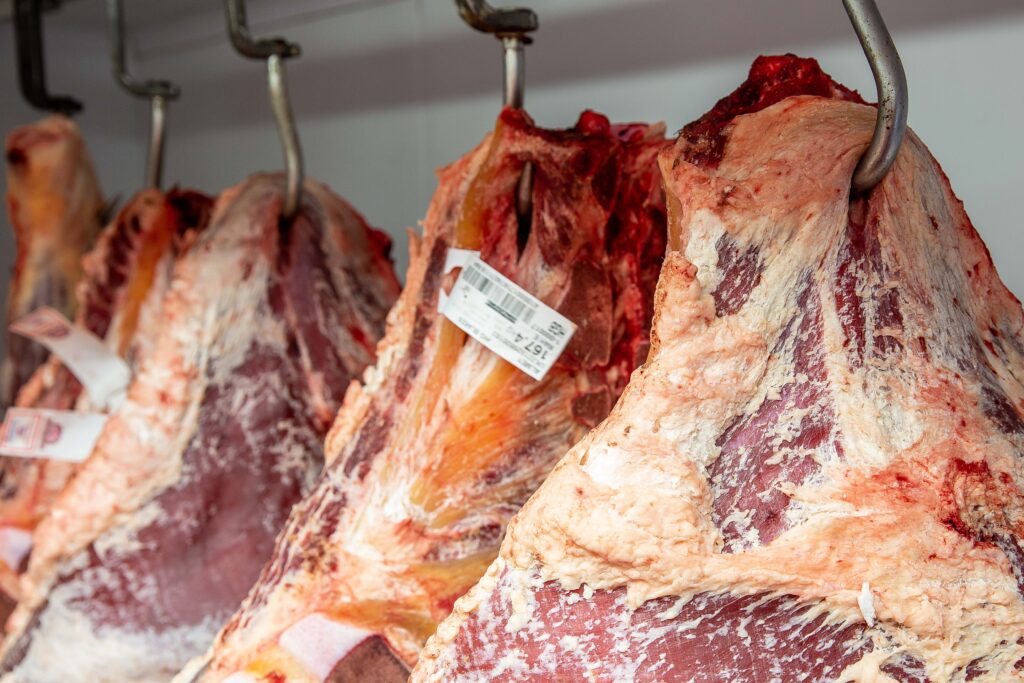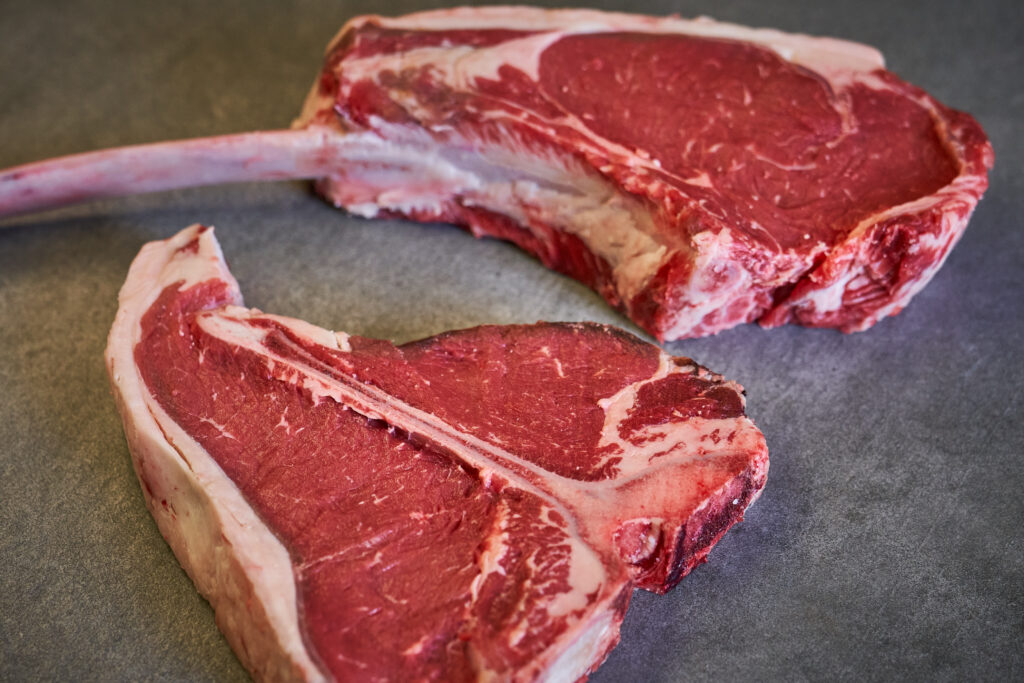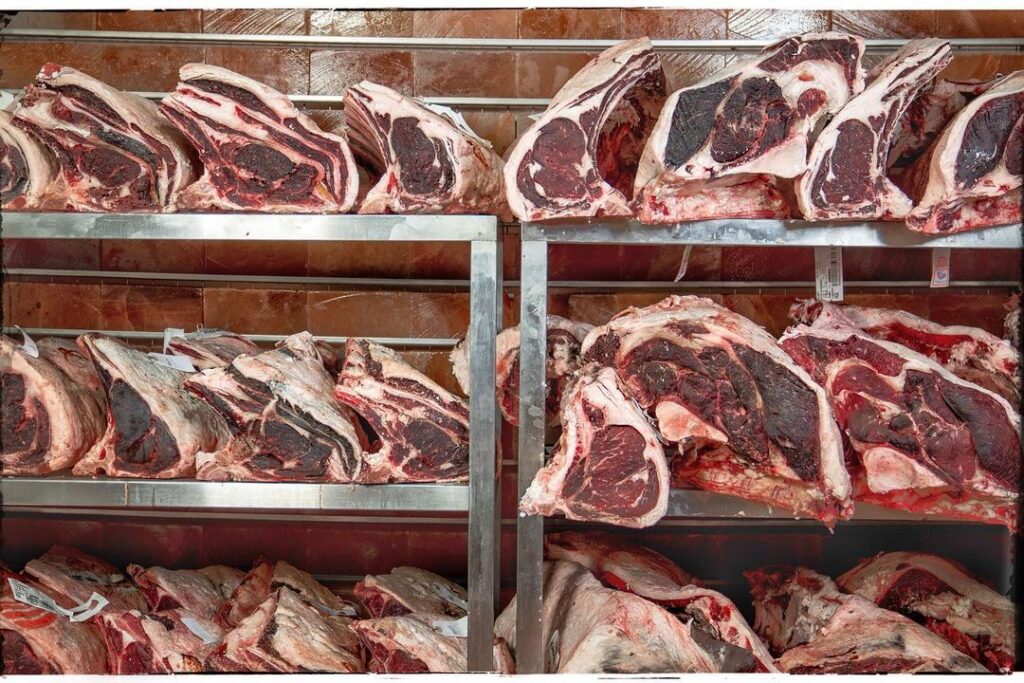Himalayan Salt Walls in Dry-Aging Steak. What’s so special?

In the world of high-quality meats, the process of aging, particularly using Himalayan salt walls, is an art that stands out.
For those who appreciate a superior steak, understanding why Himalayan rock salt is the go-to choice for aging can enhance your culinary experience. Here at Archer’s Butchers in Norwich, we’ve been salt aging our Prime Norfolk Steaks for many years and our customers definitely approve.
So what’s the purpose and why is salting a great idea ? In this short article, we dive into the reasons why a Himalayan salt wall is so pivotal in creating an impeccably aged steak.
1. Optimal Humidity Control for Perfect Aging
First and foremost, the primary benefit of using Himalayan salt in the aging process is its unparalleled ability to regulate humidity. When aging the finest Norfolk steaks, managing moisture is really important. Too much humidity can lead to spoilage, while too little can cause the meat to dry out excessively.
Himalayan salt walls naturally absorb and desorb moisture, maintaining a consistent humidity level ideal for aging. This unique property ensures that the steaks age perfectly, developing flavours and textures that are impossible to achieve through other methods.
2. Himalayan salt walls causes salt-induced tenderisation

Himalayan salt does more than just control moisture; it also plays a pivotal role in tenderising the meat. As the salt absorbs moisture, it also draws out some of the natural fluids from the steak.
This process breaks down the protein structures in the meat, naturally tenderising it over time. The result is a steak that’s not just bursting with flavour, but is also exceptionally tender, providing a melt-in-your-mouth experience that’s second to none.
3. Flavour Enhancement Without Overwhelming Saltiness

Another concern with traditional aging methods is the risk of the meat becoming overly salty. However, with Himalayan salt walls, this isn’t a problem. Using Himalayan salt walls, imparts a subtle flavour without overwhelming the natural taste of the steak.
It provides just enough saltiness to enhance the meat’s flavour profile, creating a balance that’s hard to replicate with other aging techniques. At Archers Burtchers, our experts keep a keen eye on how all ours teaks are aging, to ensure they are perfectly matured before our customers are allowed to enjoy them.
4. Natural Antibacterial Properties for Safe Aging
Food safety is paramount, especially when it comes to aged meats. Himalayan salt possesses natural antibacterial properties, creating an environment that’s hostile to bacteria. This feature is critical in preventing the growth of harmful microorganisms during the aging process, ensuring that the steaks are not only delicious but also safe to consume.
5. Aesthetically Pleasing and a Conversation Starter
Finally, Himalayan salt walls are not just functional; they’re also visually stunning. Although our customers don’t get to cast their eyes on to our fridges, their warm, pink glow adds an element of sophistication and elegance to any butchery fortunate enough to have theirs on show.
They serve as a conversation starter and a testament to the quality and care put into the aging process.

The use of Himalayan salt walls in aging steaks is a practice that combines science, art, and a bit of magic. It’s a method that respects the natural qualities of the meat while enhancing its flavor, tenderness, and safety.
For any high-quality butchery, investing in this method is not just about providing better steaks; it’s about offering an experience that is as rich in taste as it is in tradition and craftsmanship.
We believe that food tastes better when it’s been reared with care. We source our meat from those who not only share our passion for safeguarding the welfare of animals it comes from, but those who share our commitment to quality and in doing things properly.
Our suppliers, some who are third or fourth generation farmers, have learnt their trade and honed their skills over many years, translating their expertise into providing a healthy supply of quality stock all year round.
Quality meat takes time and many of our suppliers rear and prepare their meat using tried and tested traditional methods, which means their slower-grown meat is tastier and more succulent.
We work with farms who are credited for their leading welfare standards.
They, like us, adhere to schemes that underpin the highest standards of quality-assurance across the British food and drinks industry, such as the Quality Standard Mark, RSPCA and Red Tractor.


